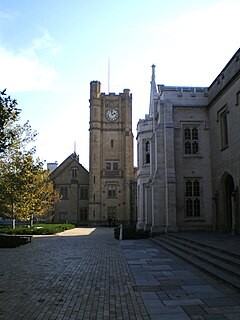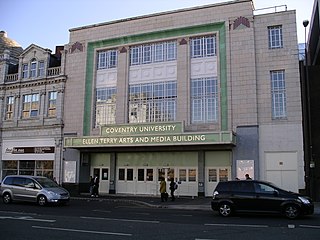Definition
The British Arts and Humanities Research Council has stated that "projects that can be defined as practice-led or applied" are those "where creative practice is integral to the project or it is undertaken with the specific goal of producing a defined research output — for example, new or improved systems, designs, artefacts, exhibitions, performances, events, products, processes, materials, devices, services, films, compositions, broadcasts, policy guidance – that will be utilised beyond the research base."
In the UK, in Drama, Dance and the Performing Arts these issues have been the subject of an Arts and Humanities Research Board (now Council) -funded project at Bristol University.
According to the Bristol University PARIP site, "practice as research (PAR) and practice-based research (PBR) — and 'research through practice', 'research by practice', 'performance as research' — are contested terms that resist close definition. Practice as research and practice-based research are frequently used interchangeably to suggest a relationship of research between theory and practice."
Dissemination and review
Screen media practice research is disseminated in a variety of ways: at academic conferences (for example, the Joint Annual Conference of Media, Communications and Cultural Studies Association (MeCCSA), now incorporating the Association of Media Practice Educators (AMPE)); through academic publication; through relationships with cultural and creative industries (such as film festivals, broadcast, online communities, and creative partnerships).
In the UK there was a debate on whether submissions of practice research for peer review needed to be supported by a written statement evidencing the research, or whether the artefact could stand alone as research. According to the AHRC Review of Research Assessment (September 2003), there was need for a clearer articulation of the research process — including research methods, context and significance — in practice-led research that was submitted to the RAE in 2003.
The Arts and Humanities Research Council suggested that "practice-led research" should incorporate a scholarly apparatus that enabled other researchers to assess the value and significance of the results and that completed work should maintain a record or "route map" of the research process. Similarly the Communication, Cultural and Media Studies Panel Report on the UK's Research Assessment Exercise for 2003 valued practice that could give "a reflexive account of itself as research", but found that many practitioners did not explain the ways in which the work constituted original investigation.

The University of Roehampton, formerly Roehampton Institute of Higher Education, is a public university in the United Kingdom, situated on three major sites in Roehampton, in the London Borough of Wandsworth. Roehampton was formerly an equal partner, along with the University of Surrey, in the now-dissolved Federal University of Surrey. In 2004, Roehampton became a university. In 2011, it was renamed the University of Roehampton. The university is one of the post-1992 universities.
David Gauntlett is a British sociologist and media theorist, and the author of several books including Making is Connecting.
The Research Assessment Exercise (RAE) was an exercise undertaken approximately every five years on behalf of the four UK higher education funding councils to evaluate the quality of research undertaken by British higher education institutions. RAE submissions from each subject area are given a rank by a subject specialist peer review panel. The rankings are used to inform the allocation of quality weighted research funding (QR) each higher education institution receives from their national funding council. Previous RAEs took place in 1986, 1989, 1992, 1996 and 2001. The most recent results were published in December 2008. It was replaced by the Research Excellence Framework (REF) in 2014.
The Arts and Humanities Research Council (AHRC), established in April 2005 as successor to the Arts and Humanities Research Board (AHRB), is a British research council supporting research and postgraduate study in the arts and humanities.
The Arts and Humanities Data Service (AHDS) was a United Kingdom national service aiding the discovery, creation and preservation of digital resources in and for research, teaching and learning in the arts and humanities. It was established in 1996 and ceased operation in 2008.
Graeme Harper is an internationally published fiction writer, scriptwriter, professor and cultural critic, who writes under his own name and under the pseudonym Brooke Biaz. To date, he has published more than 20 books and over 140 articles and chapters. His awards include the Australian National Book Council Award and the Premier’s Award, among others, and scholarships and fellowships from the ORS, The British Academy, AHRC, BBC, Emory University, the University of Texas Medical Branch and the College of Physicians of Philadelphia
Practice research aka practice as research, practice based research or/and practitioner researcher is a form of academic research which incorporates practice in the methodology or research output.(nelson, 2013).

Stuart Cunningham is Distinguished Emeritus Professor of Communication and Media Studies at QUT.
Terry Flew is an Australian media and communications scholar who from 2021 works in the Department of Media and Communication at the University of Sydney, Australia. He was formerly the Professor and Assistant Dean (Research) in the Creative Industries Faculty at the Queensland University of Technology. He has produced award-winning research in creative industries, media and communications, and online journalism. He is primarily known for his publication, New Media: An Introduction, which is currently in its fourth edition. His research interests includes digital media, global media, media policy, creative industries, media economics, and the future of journalism.

The Faculty of Arts is one of the largest faculties at The University of Melbourne. It is the University's home of teaching and research in the humanities, social sciences and languages. Teaching of the arts and humanities at The University of Melbourne began when the University was first opened to students in 1855, and the Faculty of Arts officially opened in 1903.
The Information School or iSchool of the University of Sheffield, in Sheffield, South Yorkshire, England, was founded in 1963 as the University's Postgraduate School of Librarianship and became in 2010 the first UK iSchool. The School is ranked Number One in the World for Library and Information Management. Other names were the Postgraduate School of Librarianship and Information Science and Department of Information Studies (1981-2011). As of 2021, it employs 33 academic staff, 16 administrative/support staff, 6 affiliated research staff, and has about 65 research students. The current head of school is Professor Val Gillet.
The Research Excellence Framework (REF) is a research impact evaluation of British higher education institutions. It is the successor to the Research Assessment Exercise and it was first used in 2014 to assess the period 2008–2013. REF is undertaken by the four UK higher education funding bodies: Research England, the Scottish Funding Council (SFC), the Higher Education Funding Council for Wales (HEFCW), and the Department for the Economy, Northern Ireland (DfE).

The School of English is part of the Faculty of the Arts, Design & Media at Birmingham City University. The School offers a range of undergraduate and postgraduate courses, is home to the Research and Development Unit for English Studies.

Christopher Frank Atton is Professor of Media and Culture in the School of Arts and Creative Industries at Edinburgh Napier University. His work focuses on Alternative Media where his contribution has concentrated on the notion of alternative media not as an essentialised political position but as a set of socio-cultural processes that redraw the boundaries of expert culture and media power. His research interests include popular music, the creative economy, infoshops, and teaching and learning in higher education. Atton has also written on censorship and media ethics.

The Department of Media was part of Coventry School of Art and Design in Coventry University but is now known as the School of Media and Performing Arts in the Faculty of Arts and Humanities. It is located within the Ellen Terry Building, which is a £7 million refurbished 1930s cinema in the centre of Coventry, UK.

Rosalind Clair Gill, is a British sociologist and feminist cultural theorist. She is currently Professor of Social and Cultural Analysis at City, University of London. Gill is author or editor of ten books, and numerous articles and chapters, and her work has been translated into Chinese, German, Portuguese, Spanish and Turkish.
Emilia Telese is an Italian artist whose practice includes performance, visual, site-specific and video art, interactive and body-responsive technology, installation, literature and public art. She lives and works between Brighton, UK, Foggia, Italy, and Reykjavik, Iceland. Telese graduated in 1996 with a BA (Honours) in painting from the Fine Arts Academy, Florence, focusing on 14th-century techniques, Arte Povera and political performance. In 1997 she studied acid-based printmaking techniques at the University of Brighton, where she continues to lecture. In addition she lectures at other institutions in the UK and internationally, specialising in the relationship between art, economics and professional practice. Her work Life Begins at Land's End (2013) was part of Rebirth Day, a concept organised by Michelangelo Pistoletto. Pistoletto named her a Third Paradise Ambassador, which is a small group of people chosen by him to embody the spirit of his Third Paradise concept. Her videos, along with works by other artists, were shown at the Musee du Louvre in Paris. Her most recent exhibition was Modern Women (2015) at Airspace Gallery in Stoke-on-Trent, with artist Binita Walia.
Svenja Adolphs is a British linguist whose research involves analysis of corpus data including sources of multimodal material such as the Nottingham Multimodal Corpus (NMMC) to examine communication in new forms of digital records. Using visual mark-up systems, her work allows a better understanding of the nature of natural language use. She is a co-founder of the Health Language Research Group at the University of Nottingham, bringing together academics and clinicians to advance the work of applied linguistics in health care settings.

Harriet Hawkins is a British cultural geographer. She is Professor of Human Geography at Royal Holloway, University of London, where she is the founder and Co-Director of the Centre for Geo-Humanities, and the Director of the Technē AHRC Doctoral Training Partnership. As part of Research Excellence Framework 2021, she is a member of the Geography and Environmental Studies expert sub-panel. In 2016, she was winner of a Philip Leverhulme Prize and the Royal Geographical Society Gill Memorial Award. In 2019, she was awarded a five-year European Research Council grant, as part of the Horizon 2020 research and innovation programme. She was previously the Chair of the Royal Geographical Society Social and Cultural Geography Research Group.
For Alison Phipps, researcher in feminism see Feminist views on transgender topics







